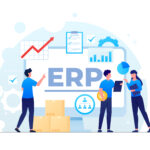Simplify Tax Season with User-Friendly Small Firm Accounting Software
Tax season can be a stressful time for small business owners, but with the right tools, it doesn’t have to be. Implementing user-friendly small firm accounting software can streamline the process, reduce errors, and save valuable time. This article will guide you through the role of accounting software, key features to look for, and steps to choose the best software for your small business.
Understanding the Role of Accounting Software
Accounting software plays a critical role in managing the financial aspects of a business. It automates and simplifies tasks such as invoicing, expense tracking, payroll, and financial reporting. For small firms, this means less time spent on tedious bookkeeping and more time focused on growing the business.
During tax season, the benefits of accounting software become even more apparent. It helps ensure that all financial records are accurate and up-to-date, making it easier to prepare and file taxes. By automating calculations and generating necessary reports, accounting software reduces the risk of human error and helps maintain compliance with tax regulations.
Key Features of the Best Accounting Software for Small Business
1. User-Friendly Interface
The best accounting software should have an intuitive and easy-to-navigate interface. This ensures that even those without a background in accounting can use the software effectively. Look for software that offers simple dashboards, clear instructions, and easy access to customer support.
2. Automated Invoicing and Payments
Automated invoicing and payment features streamline cash flow management. The software should allow you to create and send invoices quickly, set up automatic payment reminders, and process payments efficiently. This helps ensure timely payments and improves overall cash flow management.
3. Expense Tracking
Accurate expense tracking is crucial for financial management and tax preparation. Choose software that allows you to easily record and categorize expenses, attach receipts, and monitor spending. This feature helps in maintaining accurate financial records and identifying potential tax deductions.
4. Payroll Management
For small businesses with employees, integrated payroll management is essential. The software should handle payroll calculations, tax withholdings, and direct deposits. This feature not only simplifies payroll processing but also ensures compliance with tax laws and regulations.
5. Tax Preparation and Filing
The best accounting software includes tools for tax preparation and filing. This includes generating necessary tax forms, calculating tax liabilities, and providing guidance on deductions and credits. Some software even offers e-filing capabilities, making the tax filing process faster and more convenient.
6. Financial Reporting
Comprehensive financial reporting is a key feature of accounting software. Look for software that provides a variety of reports, such as profit and loss statements, balance sheets, and cash flow statements. These reports provide valuable insights into your business’s financial health and aid in strategic decision-making.
4. Cloud-Based Access
Cloud-based accounting software offers the advantage of access from anywhere, at any time. This is particularly beneficial for small business owners who need to manage their finances on the go. Additionally, cloud-based software often includes automatic updates and data backups, enhancing security and reliability.
Detailed Steps to Choose the Best Accounting Software for Small Businesses
1. Assess Your Business Needs
Start by assessing your business’s specific accounting needs. Consider the size of your business, the complexity of your financial transactions, and any industry-specific requirements. Understanding your needs will help you identify the features that are most important for your business.
2. Research and Compare Options
Once you have a clear understanding of your needs, research and compare different accounting software options. Look for software that offers the features you need, has positive user reviews, and fits within your budget. Make use of free trials or demos to test the software’s usability and functionality.
3. Consider Scalability
Choose software that can grow with your business. As your business expands, your accounting needs will become more complex. Ensure that the software you choose can handle increased transaction volumes, additional users, and more advanced features.
4. Check Integration Capabilities
Your accounting software should integrate seamlessly with other tools and systems you use, such as your point-of-sale system, e-commerce platform, and payroll service. Integration capabilities reduce the need for manual data entry and improve overall efficiency.
5. Evaluate Customer Support
Reliable customer support is crucial, especially if you encounter issues or have questions about using the software. Look for software providers that offer comprehensive support options, including live chat, phone support, and detailed online resources.
6. Read Reviews and Seek Recommendations
Read reviews from other small business owners to get an idea of the software’s strengths and weaknesses. Additionally, seek recommendations from peers or industry associations to find software that has a proven track record of success.
7. Consider Cost
While cost should not be the only factor, it is an important consideration. Compare the pricing plans of different software options and choose one that offers the best value for money. Keep in mind that investing in small firm accounting software can save you time and money in the long run.
Conclusion
Simplifying tax season is just one of the many benefits of using user-friendly small firm accounting software. By understanding the role of accounting software, identifying key features, and following detailed steps to choose the best software, you can make an informed decision that will enhance your business’s financial management. With the right tools in place, you can focus on growing your business, confident that your financial records are accurate and up-to-date.
Contact Nexevolve for top-notch small firm accounting software. Simplify your finances, manage expenses, and streamline your bookkeeping with our user-friendly and efficient solutions tailored for small businesses.






